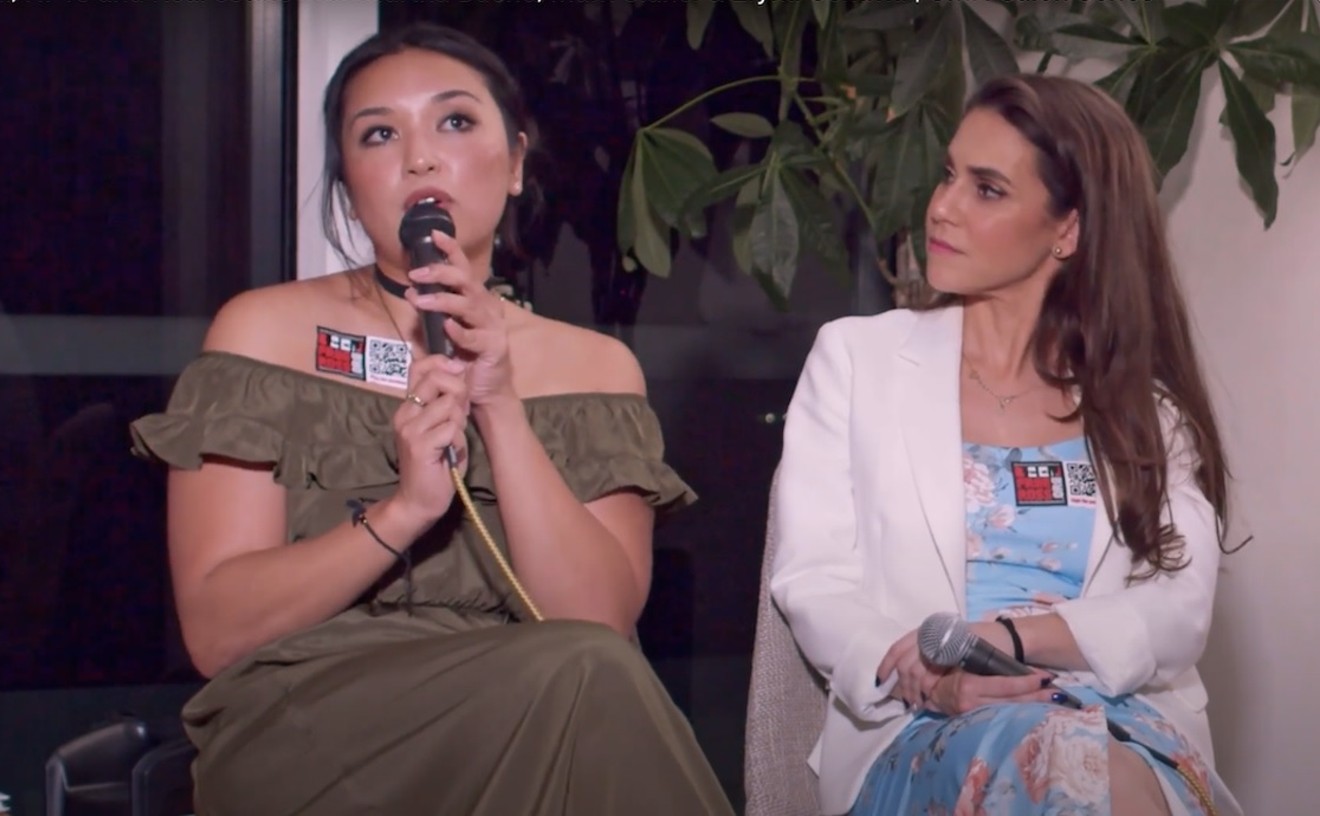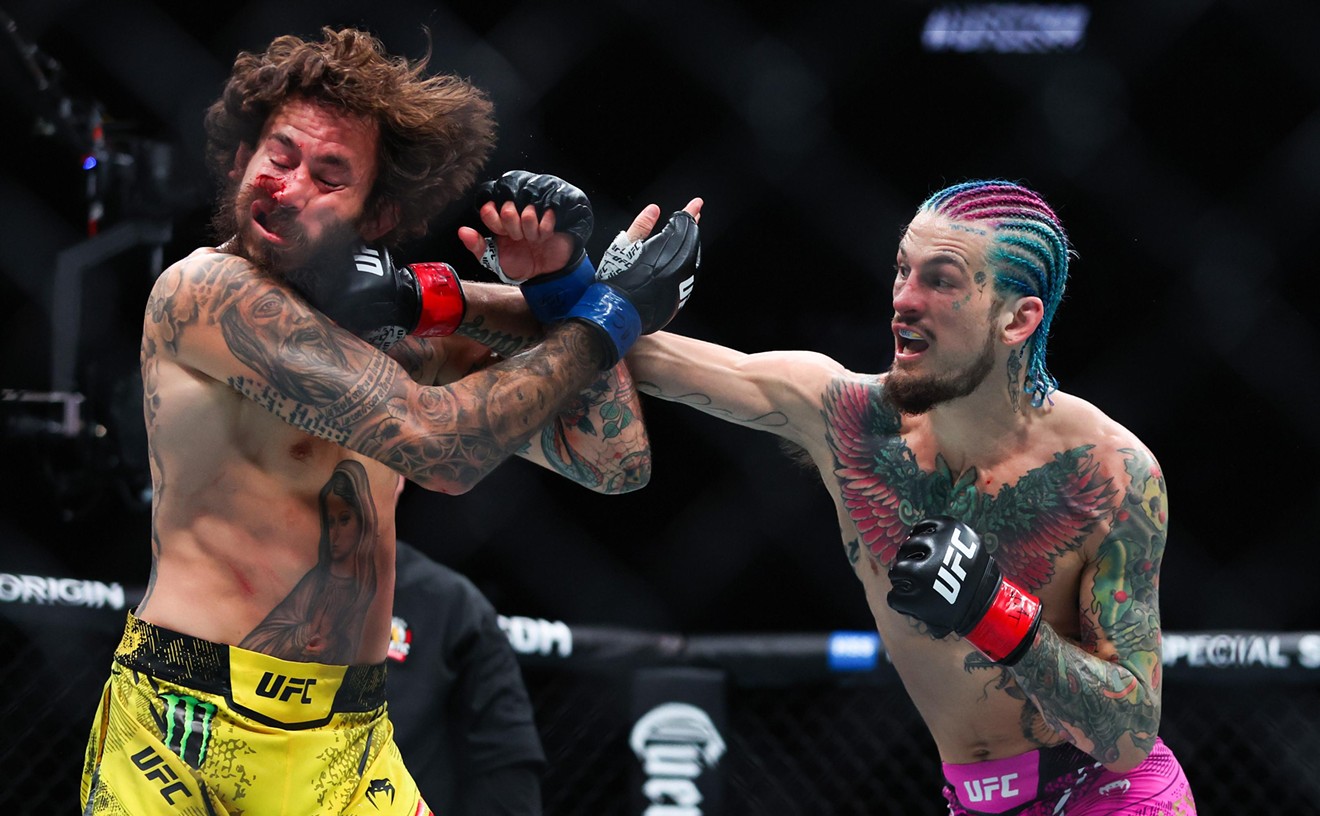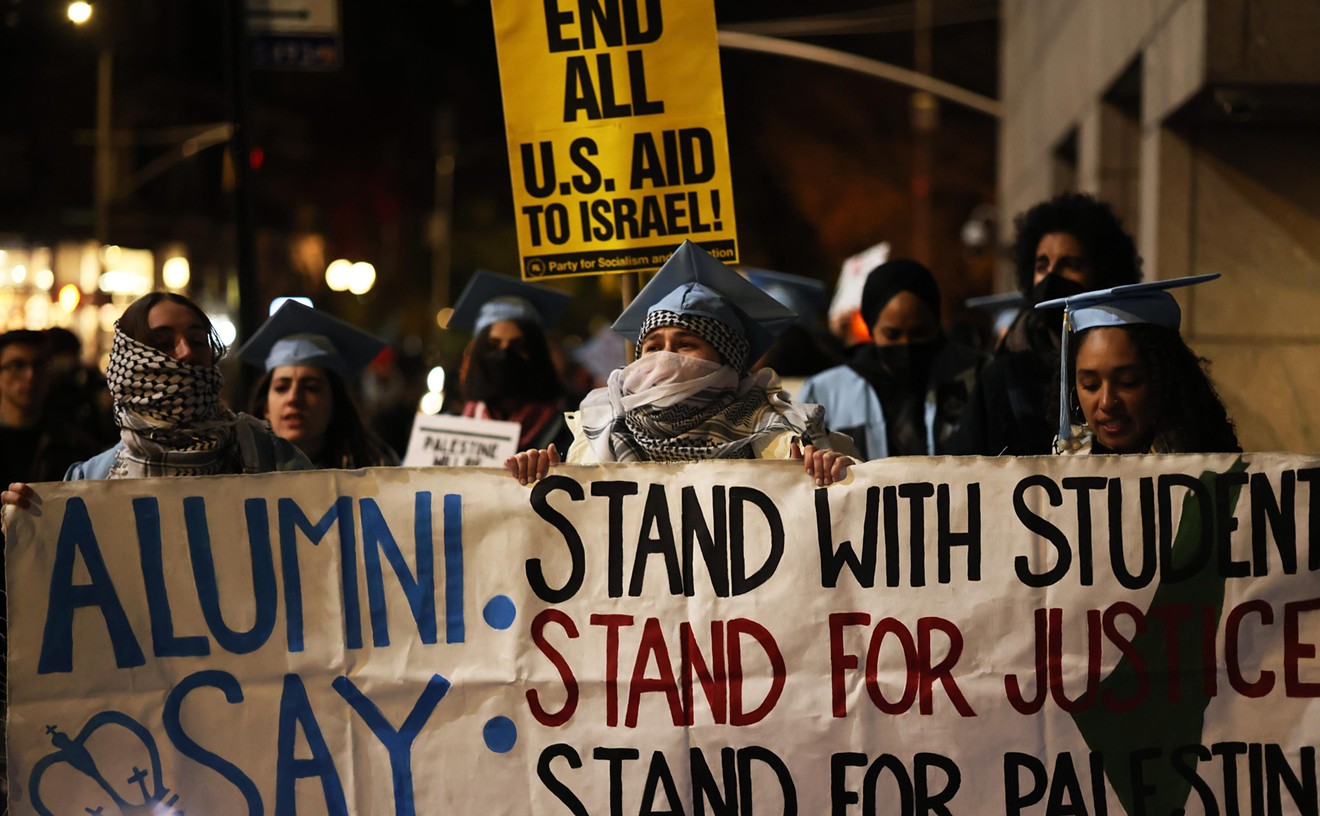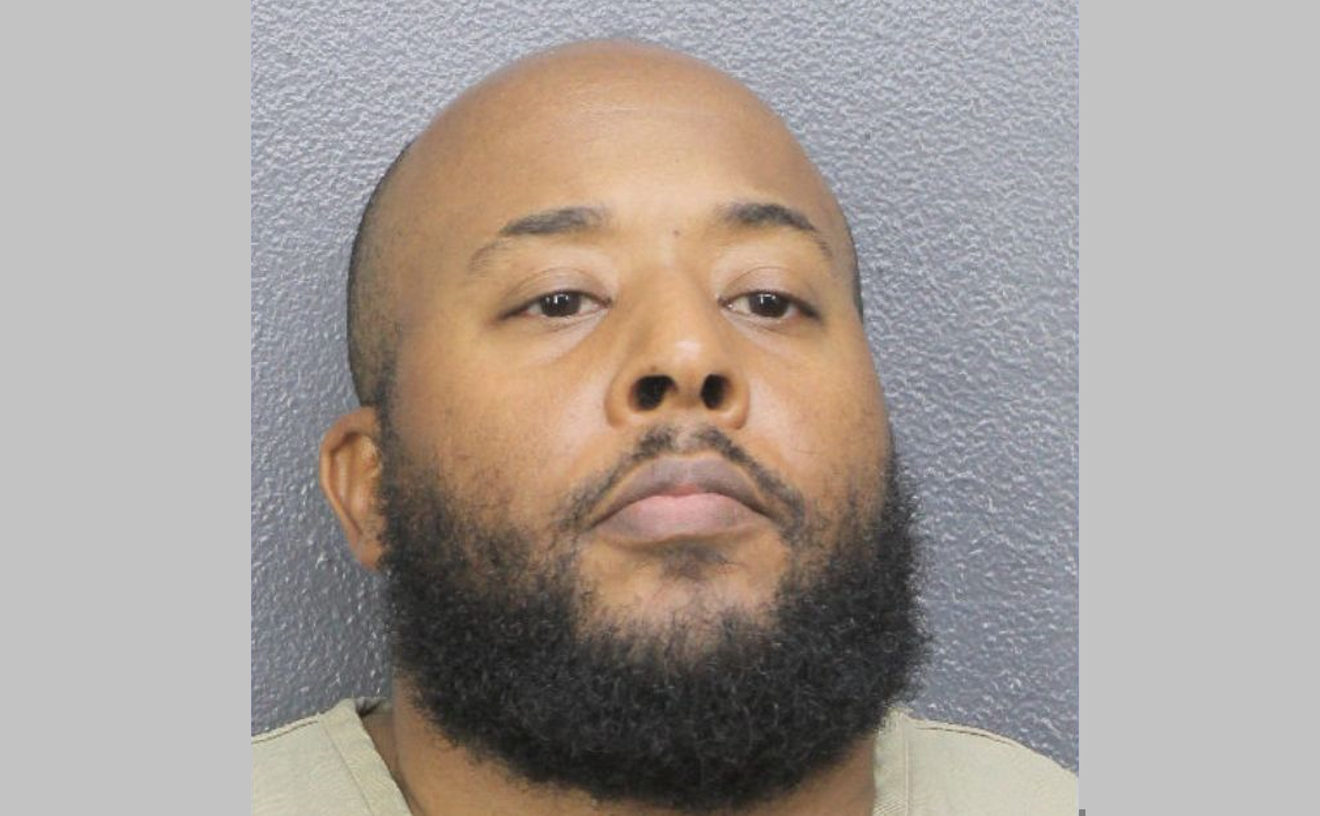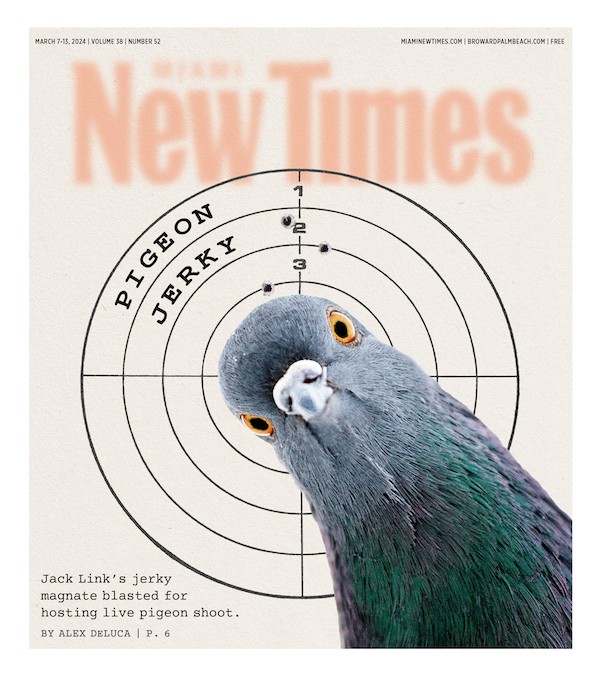When Christina was 19 years old, she came out as gay and was swiftly booted from her family’s home in Hialeah. Now, almost 15 years later, she teaches language arts at a public charter school in northwest Hialeah.
Christina wants her students to feel accepted and adorns her classroom with rainbow decals and "safe space" stickers. She sponsors the school's Gay-Straight Alliance, a student-run club that unites LGBTQ youth and their allies. Students — especially the ones questioning their gender identity or sexual orientation — have come to trust her. One student even confided to her that he was gay — the first time the 17-year-old had ever uttered the words out loud to another person. Both of them cried.
"I could tell he was burdened by whatever it was," Christina tells New Times. "As soon as we sat down, he started to talk about himself, about his family, and about the culture of oppression and silence he had worked under all this time."
Christina, who requested New Times withhold her real name for fear of professional retaliation, worries about her LGBTQ students now that the Republican-controlled Florida House of Representatives passed HB 1557, commonly referred to by opponents as the "Don't Say Gay" bill last Thursday. The bill prohibits any instruction on sexuality and gender between kindergarten and third grade or "in a manner that is not age appropriate or developmentally appropriate for students in accordance with state standards." It also requires school-district personnel to notify parents if there is a change in the "student's mental, emotional, or physical health or well-being...to encourage a student to discuss issues relating to his well-being with his or her parent or facilitate discussion with the parent."
Even though an amendment that would have required educators to "out" LGBTQ students to their guardians was axed following national outrage, scores of public educators across the state, particularly those who identify as LGBTQ, worry that if Gov. Ron DeSantis signs the bill into law, a culture of fear and silence will descend over classrooms, overriding the trust students place in their teachers. This is especially concerning given that LGBTQ youth already face higher rates of bullying and suicide than their straight, cisgender peers.
"So much of the trust students place in the adults in their lives would be eroded by something like this," Christina says. "I don’t know that I would’ve had the chance to have that [coming out] conversation [with my student], and I don’t know if he would’ve been comfortable."
Generally speaking, a violation of this law would open the door for parents or guardians to sue the school district.
"The bill is designed to keep school districts from talking about these topics before kids are ready to process them. I don’t think it’s controversial to empower parents," said Rep. Joe Harding (R-Williston), a co-sponsor of the bill, in a video clip he tweeted responding to criticism. "Kids can and will talk about whatever they want at school. We just want to make sure that teachers promote that discussion at the right age level, and we want to make sure parents are kept in the loop."
The bill now heads to the Florida Senate, where lawmakers are expected to vote along party lines and forward along the legislation to DeSantis’ desk.
“If signed into law, these bills will have disastrous impacts on classrooms and workplaces,” Brandon Wolf, spokesman for LGBTQ rights group Equality Florida, tells New Times. “They will turn Florida into a surveillance state and give the government broad license to censor conversations about American history, the origins of racism and injustice, and the existence of LGBTQ people.”
Last week, the Florida House passed another, similarly controversial bill, HB7, under the guise of protecting "individual freedom," called the "Stop Woke" bill.
The proposed legislation would make it so public-school educators are banned from teaching so-called Critical Race Theory and, like the "Don't Say Gay" bill, would pave the way for the district and educators to be sued if they don't comply.
And as with "Don't Say Gay," Christina stresses, "This bill seeks to destroy the trust educators have built with their students, and that connection is so beautiful, unique, and influential to young people."
On a recent afternoon, Christina held court with several students who are members of the school’s Gay-Straight Alliance club to discuss their feelings about the bill.
Their responses were written down and shared with New Times.
One 17-year-old who's gender-queer and uses both she and they pronouns, wriote: "The whole point of the bill is to ostracize queer students, because if it isn’t being taught in school, how are they supposed to learn about people who are different? It affects students as a whole and makes them feel wrong about their identity. There is the secondary effect that schools (where most of us spend so much time) will no longer be able to help students who are struggling with their identities in safe ways."
Another 17-year-old wrote that she worries about a future in which students are too afraid to discuss LGBTQ issues with teachers, creating a culture of silence and stigma.
The bill, she wrote, “stigmatizes the community” and “implies that the community is somehow harmful to children.
"You are taking away an opportunity for children to know different kinds of people."
LGBTQ+
Gay Hialeah Teacher Braces LGBTQ Students for "Don't Say Gay" Bill
"So much of the trust students place in the adults in their lives would be eroded by something like this."
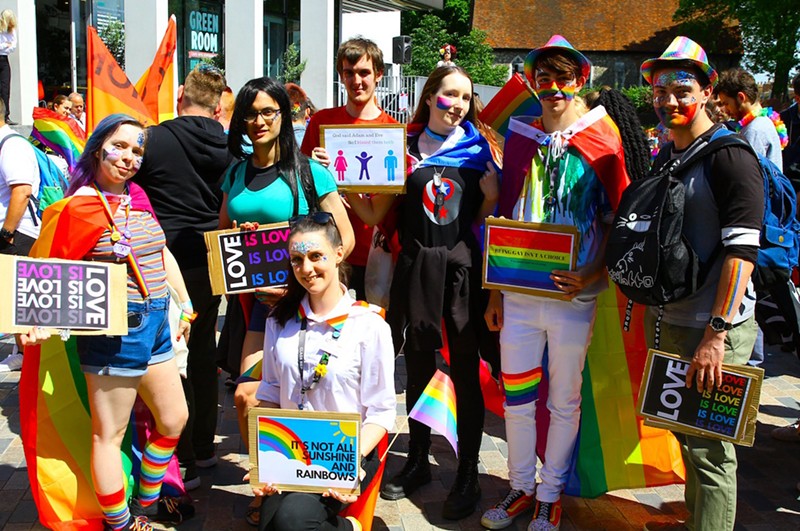
Youth protest for more civil rights for LGBTQ people.
Photo by Funk Dooby/Flickr
[
{
"name": "Editor Picks",
"component": "17482312",
"insertPoint": "4",
"requiredCountToDisplay": "1"
},{
"name": "Inline Links",
"component": "18711090",
"insertPoint": "8th",
"startingPoint": 8,
"requiredCountToDisplay": "7",
"maxInsertions": 25
},{
"name": "Air - MediumRectangle - Combo - Inline Content",
"component": "17482310",
"insertPoint": "8th",
"startingPoint": 8,
"requiredCountToDisplay": "7",
"maxInsertions": 25
},{
"name": "Inline Links",
"component": "18711090",
"insertPoint": "8th",
"startingPoint": 12,
"requiredCountToDisplay": "11",
"maxInsertions": 25
},{
"name": "Air - Leaderboard Tower - Combo - Inline Content",
"component": "17482313",
"insertPoint": "8th",
"startingPoint": 12,
"requiredCountToDisplay": "11",
"maxInsertions": 25
}
]




